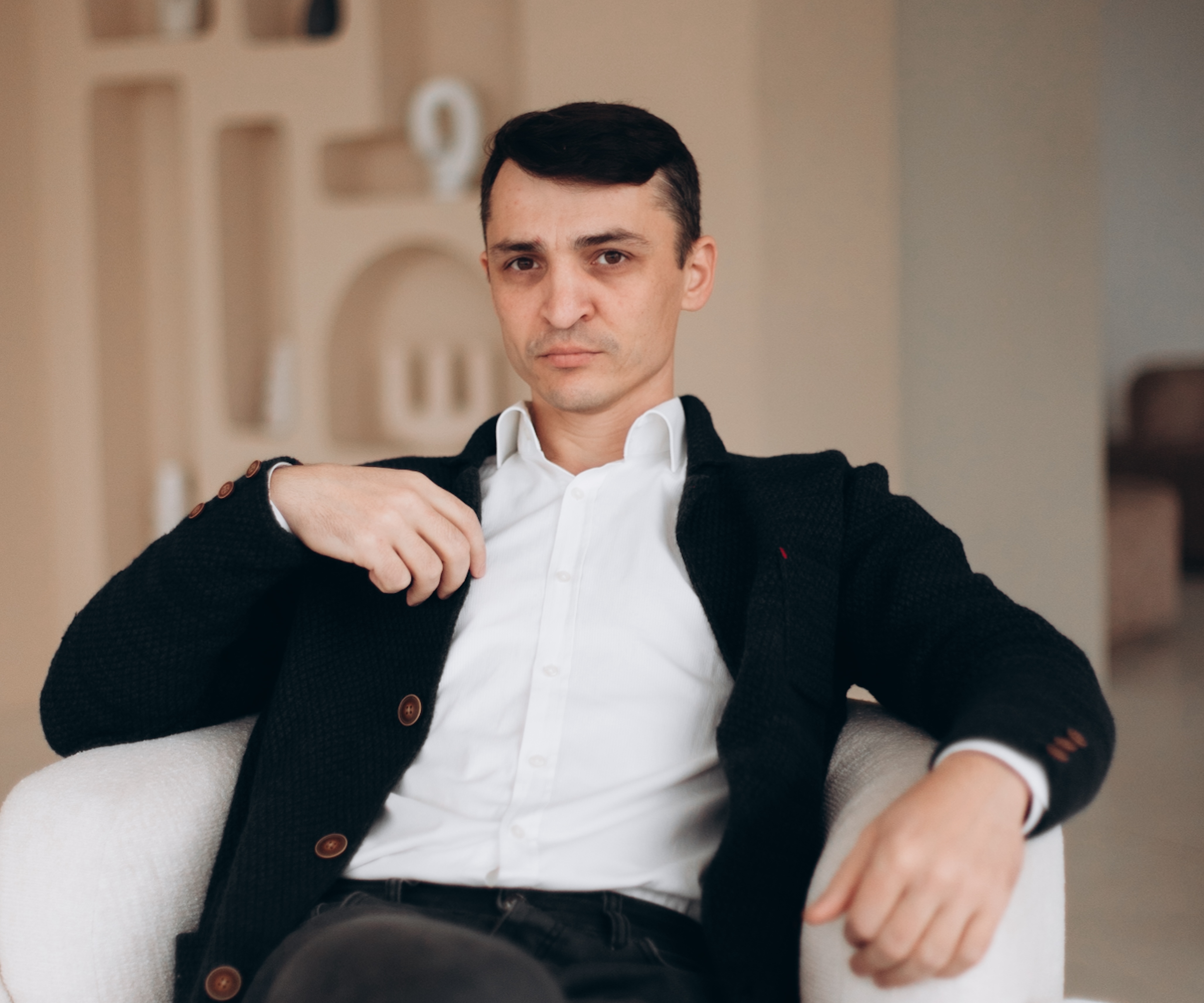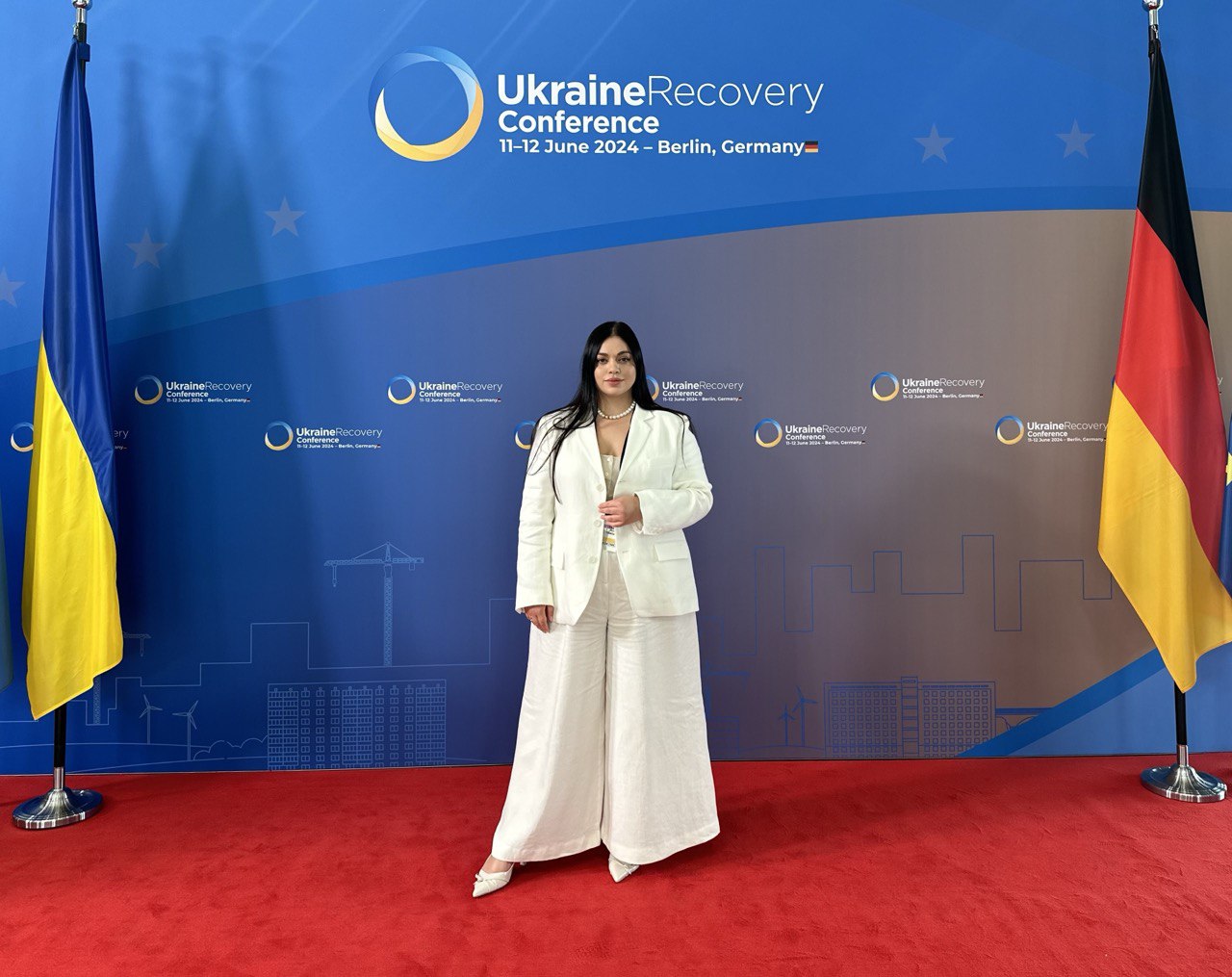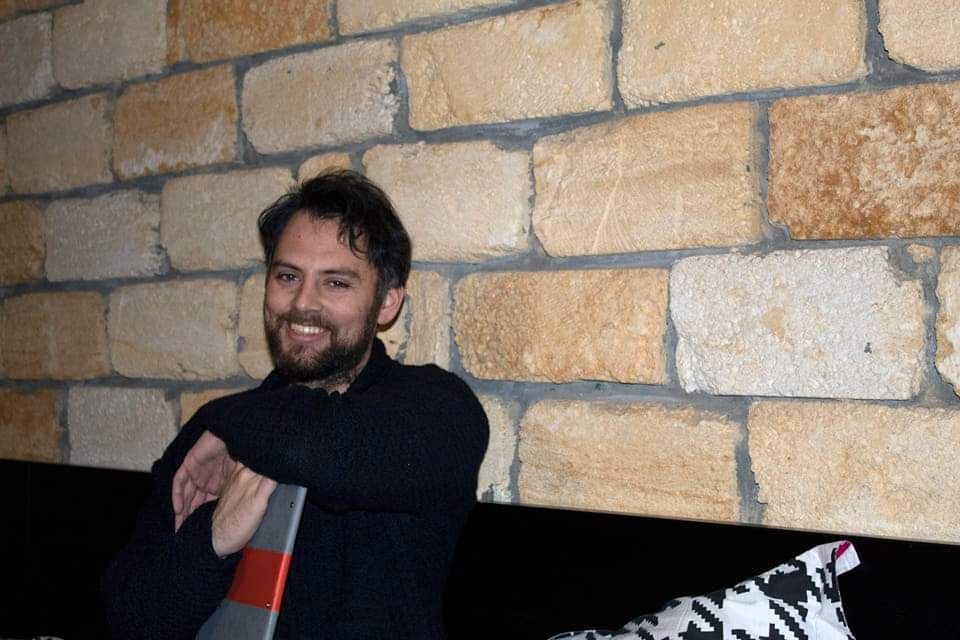Look and Do Not Ever Forget: the 80th Anniversary of the Mass Murder of Roma in Auschwitz-Birkenau C
It is the 2nd of August, 1944. The Nazis are exterminating a Romani encampment in Auschwitz-Birkenau. 4,300 Sinti and Roman people were murdered that night. Before that, there was a hitherto unseen resistance of prisoners. Once they found out that they were being led to the slaughter, they revolted. The prison officers initially retreated but eventually did not abandon their intentions. They started moving Romanis to other camps. Up until that day came: the 2nd of August…
This date became the Day of Commemoration of Memory of all the 500,000 Sinti and Roma people that were murdered in Nazi-occupied Europe.
On this day, a commemorative ceremony takes place in Auschwitz-Birkenau, on the same spot where Romanis were executed. This commemorative project, Dikh He Na Bister (Look and Do Not Forget) is attended by hundreds of participants from all across Europe. Young people from different countries study together and familiarise themselves with unknown pages of history, visit memorials, and pay respect to the fallen ones.
Delegation of the ARСA Youth Agency for Roma Culture Advocacy also attended the event. The Dikh He Na Bister event, the tragedy of Holocaust, and the commemoration of the memory of the fallen ones was one of the topics we discussed with ARСA representatives.
Below is our blitz-interview with Volodymyr Yakovenko, the executive director of ARСA Natali Tomenko, Deputy Director of ARСA, and Janusz Panchenko, ethnographer.
1. Dikh He Na Bister. What is the significance of this event to you and to the Roma community of Ukraine and of the entire world?
Volodymyr YAKOVENKO:

– For me, this event is a very important one. I have visited this death camp in 2016 for the first time and, since then, I have attended this event almost every year. And every year, I found out something new, some new details which I examined from a new standpoint.
This made me think that people failed to make proper conclusions after all these horrors happened. Had they really learnt from the experience of those terrible events, there might have not been any new wars ever since.
Natali Tomenko:
– When I first attended this event five or six years ago, it opened the story of Roma Genocide to me. One could actually see artefacts, the crematoria, the entire compendium of horror with one's own eyes. One could feel the stench where barracks stood. One could touch the items. And that was a great stress to me. I came to understand how ruthless the world can be to groups like Romanis and Jews. I suddenly had an urge to do more in order to prevent something like that from happening again. That is why, we here, in ARKA, started implementing projects aimed at combating anti-Gypyism .
For Ukraine and for the world, Auschwitz and Dikh He Na Bister are not only a possibility to visit an important event, to get familiarised with the context of Genocide in different countries but also a chance to share one's experience and vision. It is also a possibility to expand the scope of one's partnerships, to build new collaborations. And, of course, to honour the memory of the fallen Romanis here, within a commemorative ceremony that is taking place on August 2nd.
Janusz Panchenko:
– August the 2nd is an important date, considering the fact that Romanis have been victims of genocide throughout their history, ever since they appeared here, in Europe. It is just that the Genocide of the Second World War is a very recent event, hence it is in our memory. Although, anti-Gypsy laws were in place in Europe earlier, too. So Hitler's adherents did not invent anything new. They just put together the already-existing views and opinions. They then found new approaches to extermination of Roma — on a larger scale. But the gist of it had existed before. Romanis have always been victims to persecutions and xenophobia.
Romanis were banned to walk on earth, hence they lived on trees. In Spain, Romanis were banned from appearing in public. There, we can still find the so-called «Romani Caves».
But Romanis are also a community that was afraid of discussing their problems and thought that it was better to just put up with all that, wait it out, because if you dare resist, the consequences will be even worse.
Such standpoints were in place during the Second World War, too. Whilst Jews started speaking out and fighting and demanding that Holocaust be recognised as genocide, the Romanis kept silent about their genocide for a long, long time, as they feared that standing up would exacerbate their already dire current situation.
And thus, up until the 1990s, no one knew anything about the Romani genocide. Hence, the tradition of commemorating the victims among Romanis is a very recent one. As far as Ukraine is concerned, few people even mentioned that on a national level— nay, even today, many people know nothing or next to nothing about this tragedy.
Therefore, events like Dikh He Na Bister are most important as they help disseminate knowledge about this tragedy. This tragedy befell my own family, too. That is why I want more people to speak about the Roma Genocide. Speak louder! And Dikh He Na Bister is one of the possibilities to do so.
Another side of the problem consists in the fact that many Romanis themselves do not know anything about this date: August 2nd. Inside the Romani community, this is referred to as Kali Trash – the time when Romanis were killed. Therefore, these commemorative events are also important for the enlightenment of the Romani youth.
2. Has the attitude towards the Romani tragedy of August 2nd changed over the 80 years? What about the culture of commemoration of victims?
Volodymyr YAKOVENKO:
– Alas, the Romani Genocide was not recognised as such right away. The attitude towards Roma Genocide was ambiguous in different countries. More focus was on the Jewish population. Whereas in reality, there were many groups that underwent extermination.
Approximately 6 million German communist went through concentration camps. Other victims of concentration camps included Evangelists and homosexuals. But the first ones who fell victim to extermination—even outside concentration camps—were people with disabilities and mental illnesses. Those were killed on the spot, in hospitals.
There are many topics in modern-day society that are not being discussed. And therein lies the problem.
I think that everyone who is into human rights advocacy—be they activists or law enforcement officers or politicians—must attend events like Dikh He Na Bister. They must visit places where concentration camps used to be. They must be provided with information on what actually happened, how were people exterminated and why.
We need to do this in order for the people who are defining policies nowadays never make the same mistakes again. And human rights advocates must be aware of how valuable human rights are. They must understand why is it that they are protecting human rights. Because human rights and human lives were completely depreciated there, in concentration camps.
Natali Tomenko:

– It is without any doubt that the attitude towards the Romani tragedy has changed. After all, over 08 years, many Romanis have already recognised August 2nd as the Day of Commemoration of the memory of Romanis who have perished during the Second World War. That is undoubtedly the fruit of work of activists.
Janusz Panchenko:
– As I have already mentioned, most Romanis—aside from civil activists and academic researchers—know nothing about this. So far, this date is inside a sort of a bubble. Gradually, people find out about it. That, too, used to be the case with the 8th of April—the International Day of Romanis. The date was initially only commemorated within a circle of activists, as most other people knew nothing about it. In the past 8-10 years, however, the situation underwent changes. Now, Romanis, too, know that the 8th of April is their date, too.
Same thing is going to happen to August 2nd. So far, few people know about it. But once you start talking about it—particularly on the national level—the situation is going to change.
3. What do we need to do in order to make more people know about the extermination of Romanis during the Second World War? I mean, as far as the Ukrainian context is concerned.
Volodymyr YAKOVENKO:
– Ukraine is one of the four countries that were first to recognise the Romani genocide. It has also designated August 2nd as the Day of Commemoration of Romani people. A corresponding Executive Decree was passed. In reality, however, almost nothing is implemented.
There are cases when Romani civil activists find places of mass shootings of Romanis and try installing commemorative signs in those locations whereas state and local authorities not only not assist them but even preclude them from doing that.
On commemorative days, we do not see a mourning candle live on TV channels— which is the usual case on other nationwide days of sorrow.
Besides, school textbooks, too, contain no information on Romani genocide. This is a question that needs to be highlighted. After all, Romanis were exterminated in Ukraine during the Second World War. We have at least 60 known locations of mass slaughter of Romani population all around the country.
Thus, there should be a clear and organised state strategy focused on that question, in order that the memory be preserved. So far, alas, we have seen nothing of the kind.
Natali Tomenko:
– First and foremost, there is something we are already doing: going into the masses, talking about it, organising meetings. We are focusing on how important it is to honour and preserve memory, to include the history of Romani Genocide into the general system of education in schools. Without that, we shall never be able to implement changes and change the attitude towards Romanis specifically. This is particularly important in the Ukrainian context, as we are considering Ukraine’s entry into the European Union, stressing the fact that Ukraine is a multinational country, a tolerant country. And this is something that must be perceived in action and not only on paper or through speeches.
4. Let us discuss our family in the context of Holocaust. What kind of memories do the elder members of the family share with you? What is the main lesson that you have learnt from their stories?
Volodymyr YAKOVENKO:
– Almost every single Romani family can tell you how they survived the Second World War, about their relatives who were murdered.
In the Soviet Union—nay, even in the early 1990s, this question was all but ignored. The common opinion ran like this: «Who would need that? Who would listen to that?..» Any conversations that were held only took place in the family circle, during the commemorative days. As far as the public space was concerned, that was totally out of question— neither the extermination, nor the Romanis who stood in defence of their country as they went to join the army. That is why, one of the provisional terms used is «The Despised Genocide».
In my family, they wanted to gun down my grandmother and her husband. They were put against the wall. Her husband was shot. Unfortunately, I do not know how was it that my grandma managed to avoid being killed. She fled with three kids and sought shelter. One child died from dysenteria. Another one, an infant, simply froze to death. It was in deep autumn. They spent their nights wherever they could. And it was then, during one of such nights, that the child simply rolled out from the blankets. When morning came and grandma found her, the child was already dead.
Grandma took the loss of her husband and children very painfully: she nearly turned mad. Those children were coming to her in her sleep…
Romanis experienced same tragedies Ukrainians did, together with their entire nation. This is something we need to know and keep in mind.
Natali Tomenko:
– My family has another story: the SS officers wanted to exterminate my grandfather and great-grandfather but another German officer saved them.
For me, this is a story of humanity. We are accustomed to hear that the Nazis were only murdering. That said, there exist very personal stories of humane attitude. These stories tell us that, in many historical events, the main thing is/was to remain a human being.
Janusz Panchenko:

– I have heard many stories from my granddad who told me how the Nazis murdered my family. When Russia's full-scale invasion began, the first thing I heard from the old people was: «God, please let it not be like it was when Romanis were murdered». That is, during the Second World War.
This is a war which the Romanis recall most. During the first days of the full-scale invasion, there was one woman with us. When she heard explosions, she said: «The Nazis are firing at us»…
I come from Kakhovka city. Once it god under occupation, people said: «They say that soon they are going to send Romanis to Siberia, like they used to send us to Germany back then». There was occupation, there were rocket attacks, and now this: they are striking even more fear into us—so strong were those memories.
Look and Do Not Forget: Dikh He Na Bister. The history goes in cycles. Crimes against human beings, their rights and liberties have always been taking place. Alas, this monster raises its head once again today, in our progressive, civilised world. Or perhaps it did not ever even put it down?
Look and Do Not Forget: How miscellaneous attributes constituted grounds for murder. Ethnic origin, political convictions, physiological and mental peculiarities… Anyone can fall into the category of «To Be Exterminated».
Look and Do Not Forget: There are thousands of those murdered by the Nazis whose names we shall never find out… Never forget, always honour.
See also
- Remembering Together: The First Summer School on Roma History in Berlin
- Roma Summer School “Remembering Together” Launches in Berlin
- Empowerment of women, ending discrimination based on place of work and origin: Pathways to Equality
- Holocaust: tragedy of the Romani people that remains one of the least studied pages of the ІІ World
- How to Decolonize Memory?
- Workshop “How to decolonize memory?”
- International event Dikh He Na Bister
- Roma Holocaust Memorial Day
- Roma Civil Society Forum: Video
- The event in Heilderberg, Germany
- A training on the Roma Genocide during World War II.
- The “Collage of Memory and Associations”.
- Art class “Genocide through my eyes”.
- Seminar “Me and Auschwitz”